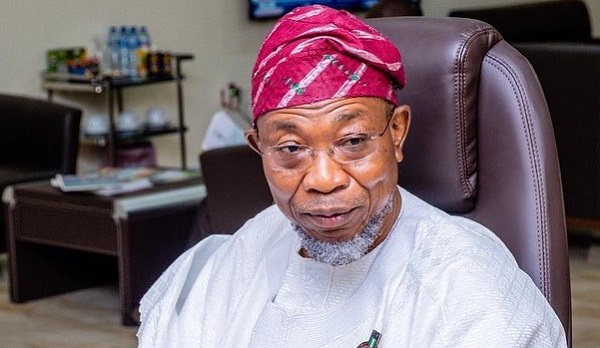CBN bans OPay, Palmpay, Moniepoint, Kuda Bank from onboarding new customers

*Nigerians react, want direct conversion
By OUR REPORTER
The Central Bank of Nigeria (CBN) has issued a directive to four fintech companies, asking them to stop onboarding new customers until further notice.

The affected fintechs — OPay, Palmpay, Kuda Bank and Moniepoint — have been linked to allegations of accounts being used for illicit foreign exchange transactions.
A media report has it that representatives from two of the companies have confirmed that the CBN’s order is related to these allegations.
However, they noted that the directive might be misdirected, as the majority of the implicated accounts belong to commercial banks, not fintech platforms.
“I can confirm that 90% of the accounts implicated in the illicit forex transactions are with commercial banks, and only 10% are with fintechs. Why then has the CBN not extended this directive to the commercial banks? We face a widespread issue here, and targeting fintechs seems like an unfair focus on the more vulnerable targets,” one of the sources explained.
1,146 accounts blocked
According to Nairametrics in an earlier report, the Economic and Financial Crimes Commission (EFCC) recently secured a court order to freeze at least 1,146 accounts owned by various individuals and companies allegedly involved in illegal foreign exchange transactions.
Justice Emeka Nwite, in a decision on the ex-parte motion presented by the anti-graft agency’s lawyer, Ekele Iheanacho, also approved the commission’s request to complete the investigation within 90 days.
Though the verdict was issued on April 24, 2024, its certified true copy was granted on Monday April 29. The other offenses under investigation by the EFCC involve money laundering and terrorism financing.
A look at the list of the affected accounts shows that most of the bank accounts involved are mostly deposit money bank accounts, the report said.
In its request for the order to block the accounts, the EFCC disclosed that its preliminary investigation revealed that the bank accounts are linked to persons who take advantage of the virtual cryptocurrency exchange platforms to illegally manipulate the value of Naira and launder the proceeds of unlawful activities.
It also cited the need to preserve the funds in the identified bank accounts pending the conclusion of the investigation and possible prosecution.
Fintechs on target
Although a copy of the court order for the blockage of the accounts, Nairametrics said, shows that most of the accounts involved in the alleged illegal forex trading were commercial bank accounts, the banks have not been directed to stop onboarding new customers.
According to one fintech industry source who would not want to be named, this shows that there is a stronger and better relationship between the banks and the CBN compared with fintechs.
“In terms of KYC, the fintechs are doing better than the banks, but all eyes seem to be on the fintechs whenever the issue of KYC occurs.
“On the issue of payment fraud, fintechs are also often seen as the platforms where frauds happen, but this is an industry-wide problem. In fact, if you see the amount of money the banks are losing to fraud, you will marvel. No fintech can lose that amount of money and remain in business,” the source said.
Nigerians react, want direct conversion
In the meantime, Nigerians in reaction to the development have called on CBN to let citizens with the direct conversion of their naira to dollars or any other currencies as against having to buy in cash and then go to deposit.
Among them who took to the X social media network to respond was Louis Tabai @louistabai.
Tabai said, “CBN should allow direct conversion of naira to dollars or whatever and charge a fee. We don’t need to buy FX in CASH before depositing in a dorm account. That’s the solution.”
On cabal not wanting Bureau de change business to be killed, Louis tmTabai said, “Yea that’s the concern for their BDC biz. Nigeria is the only country whose Central Bank sells FX in cash to BDCs who then resell to us. There’s probably more cash $ in Nigeria than 2 or 3 states in the US put together. Let’s get rid of FX in cash and convert electronically.”









